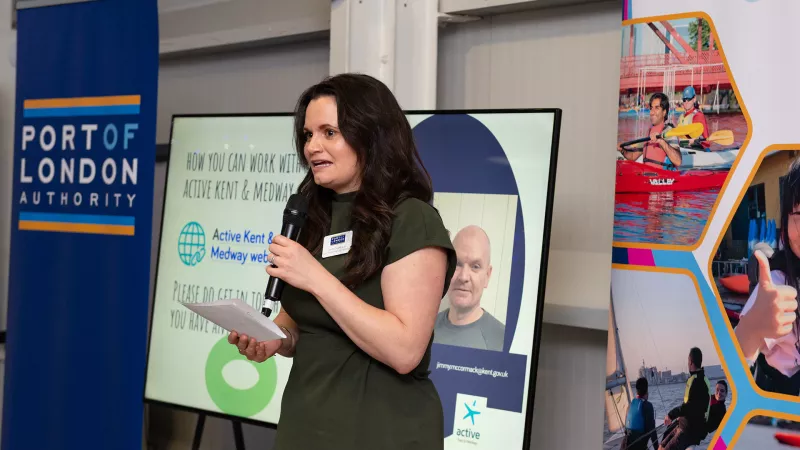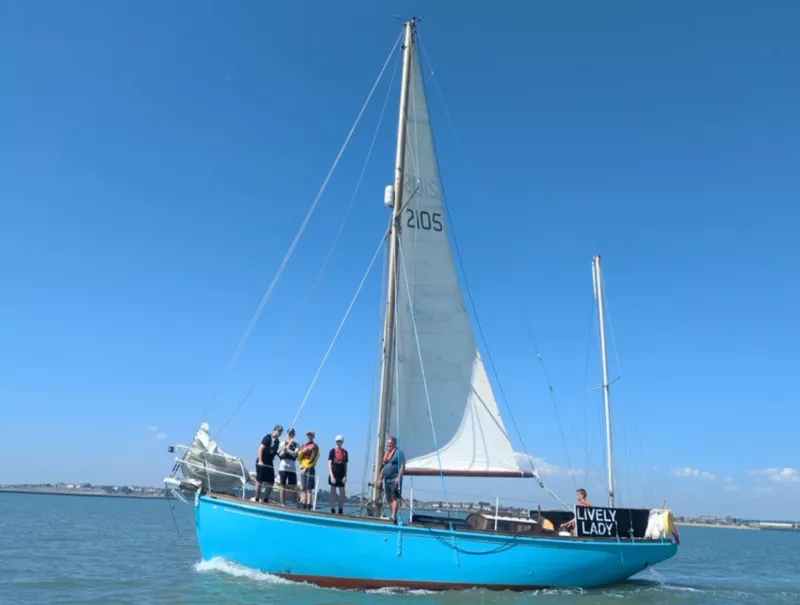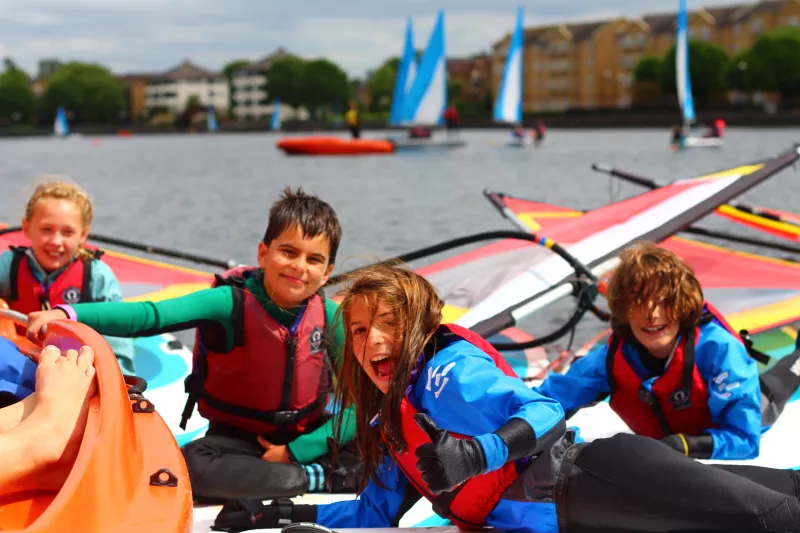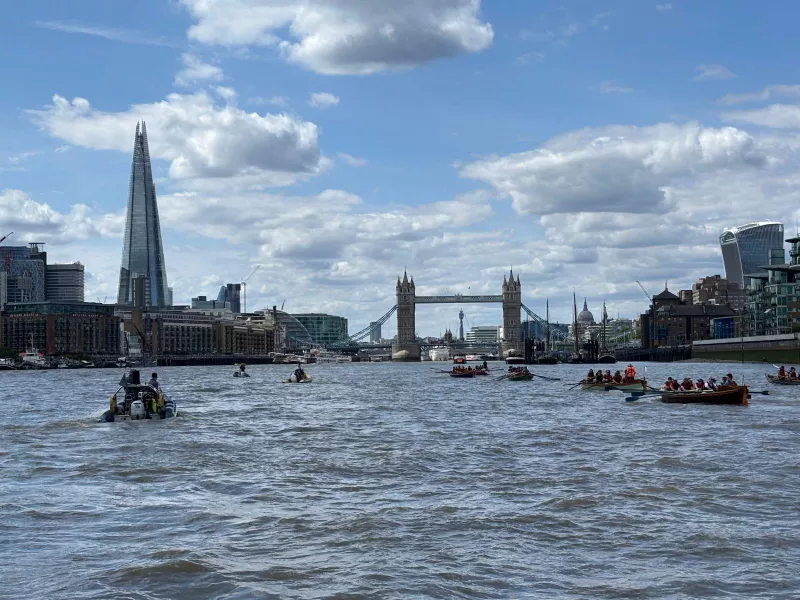Rowing is drastically changing the way young women embrace their inner strength
Rowers feel empowered
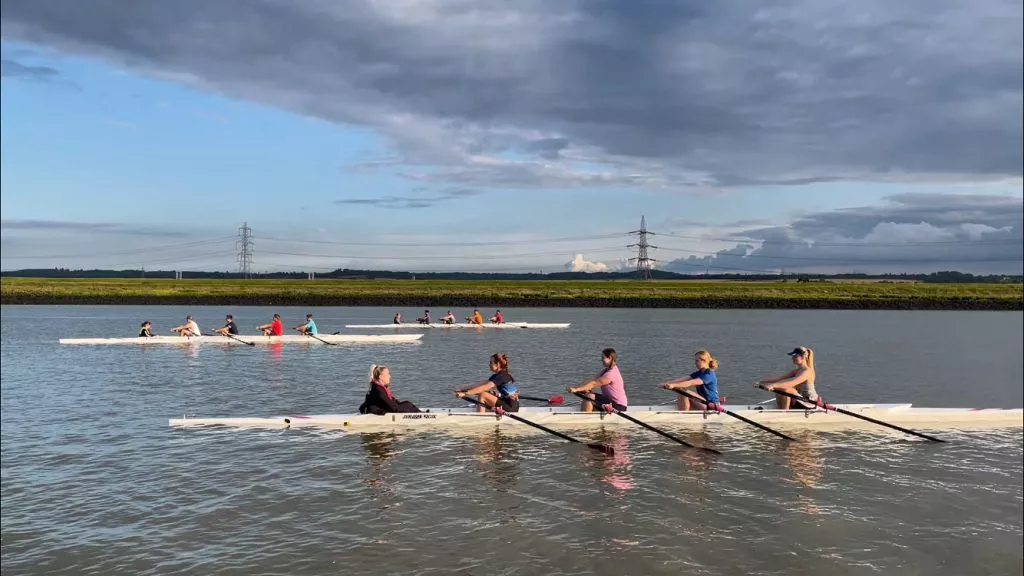
Gravesend Rowing Club are championing female body confidence, inclusivity and allowing greater opportunities for juniors and adults alike to achieve in rowing, thanks to an investment in a safety boat engine from Active Thames
By Emma Blackmore
“How many people can say they’ve seen three seals on the Thames this year?” sixteen-year-old rower Molly Knot asks. The teenager joined Gravesend Rowing Club two years ago, having been introduced to the sport through her school’s PE curriculum. “It’s a very different sport,” she says. “I decided to continue after my school’s Learn to Row course because it’s unique and I enjoy it.” It also made her feel strong: “You get very good leg muscles!” she laughs.
Molly is one of over thirty juniors at Gravesend Rowing Club experiencing the vast benefits of being out on the water. The club, which was established in 1878, has been able to increase participation in the sport, especially female participation, through an investment in a safety boat engine, funded by Active Thames. The initiative, led by Port of London Authority, aims to increase diversity and inclusivity in watersports.
A grant of £3,300 has allowed the club to deliver rowing courses with adequate safety cover for both juniors and adults. The club have been able to purchase an engine for their second safety boat which allows rescue in the event of a capsize.
“Safety concerns are a lot higher in Gravesend because of the tide,” Matthew Johnson, coach and club captain explains. With two safety boats, the club is now able to double the amount of members they have on the water, ensuring even greater opportunities to adults and young people alike.
Having joined as a junior himself twenty years ago, Matthew is particularly proud of the club’s recent development, from no official coaches when he joined as a thirteen-year-old to now having three official coaches, plus assistants. Determined to shatter the stereotype that rowing isn’t accessible, the club aim to make fees as little as possible. They also support two local schools, St John’s and Mayfield Grammar School, with Learn to Row courses in an effort to engage the local community into rowing at a young age, with the support of London Youth Rowing.
Mayfield Grammar School, where Matthew is a PE teacher, received a separate grant from Sport England earlier this year for indoor rowing machines to give pupils a taste of rowing. Students then continue rowing out on the water with the club.
“It’s really good to see students that aren’t your typical football, rugby or netball players being able to actively feel like they can achieve in a sport. I think that is so important,” Matthew explains. Rowing caters to young people who may feel ostracized out of sports and its emphasis on weight training, circuits and lifting mean the rowers feel empowered and strong.
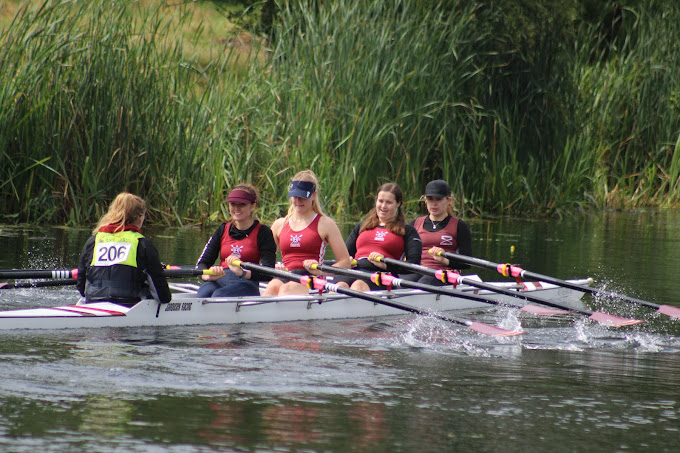
“It’s really good to see students that aren’t your typical football, rugby or netball players being able to actively feel like they can achieve in a sport. I think that is so important” Matthew explains.
Rowing caters to young people who may feel ostracized out of sports and its emphasis on weight training, circuits and lifting mean the rowers feel empowered and strong.
15-year-old rower Matilda Osborne agrees. “I think the fact that we have a lot of women in the club defeats the stereotype that women can’t be strong because here we are, all working together. Men and women aren’t separated, we all work together and treat everyone exactly the same. I really like that because obviously you’ve got sports that are stereotypically for men, or for women, but here, there are no stereotypes. And for juniors, you don’t need a certain time to race. You get put in races if you work hard and show that you’re going to be committed.”
Molly Knott loves the social aspect of the club. “You spend time with the same people for about six hours a week and you get to know them really well. I love the camaraderie and how the adults and juniors mix together. At social events, everyone mixes and so you get to know everyone and there are lots of opportunities [for progression],” Molly says. “There’s always someone you can talk to about anything really. It’s really nice the juniors and adults get along so well.”
Molly has competed in over twenty races but she stresses that within the club there’s no pressure to win. “Rowing is one of the very few sports where you can actually look at a number on a rowing machine to see how well you’re performing and it really drives you to beat your own personal best. The main thing is that everyone gets the chance to row. It’s a very uplifting community.”
Reflecting on 2022, Matthew says: “Every time we have new people, every time I send a person off to university and they decide they want to carry on rowing, every time you get a student that wants to come back and help the club, I feel like it pushes the club one step forward. And when I’m too old and passed it and I have to leave the club,” he laughs, “if it’s progressed further and given people greater opportunities, then I’ve achieved exactly what I wanted.”


